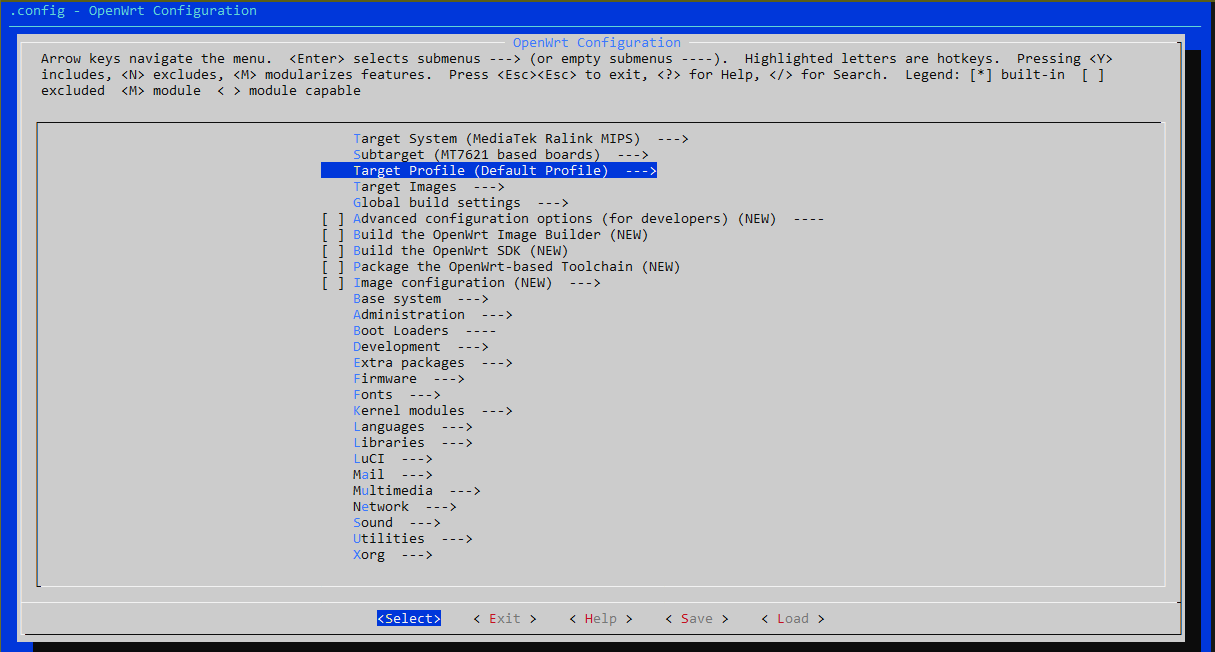First time here. Was previously using OpenWRT with EA3500 to great success. It crashed finally, I think it was 5-7 years old. The EA6350_v4 is not the same as EA6350_v3, so the firmware flash didn't go so well, but I found the documentation for reverting it, and I'm now running factory firmware. 
Here's the information I gathered so far:
https://wikidevi.wi-cat.ru/Linksys_EA6350_v4
CPU: Mediatek?
Bought it here:
https://www.bestbuy.com/site/linksys-ac1200-dual-band-wi-fi-5-router-black/6400536.p?skuId=6400536
No manufacture link, 404, might be exclusive to BestBuy?
Don't just blindly flash firmwares please. You could have completely bricked your device.
MT7621 is a widely supported platform, so porting isn't too difficult if someone 'in the know' gets their hands on it. I'd wager there's nothing Best Buy exclusive about it. It's a v4. v3 is a Qualcomm platform. Ain't no more to it.
1 Like
Thanks for the reply. I agree that caution would've been wise. Didn't expect to run into a brand new unsupported version. Matched up the model numbers and away we go, or not.
More often than not manufacturers switch vendors and platforms between versions. D-Link is notorious for that, e.g. - but Netgear did the same with the WNDR3700: five revisions, three Qualcomm/Atheros, one Broadcom, one Mediatek.
Better check the internals before trying to flash an image, it's not like installing an OS onto an x86 system.
1 Like
So next step is to wait until someone gets ahold of one? Anything I can do to help since I'm holding one?
Sharing a boot log, dmesg output etc. will help, flash layout I guess. You might try on IRC and see if someone is willing to poke around.
1 Like
Can you refer me to documentation for the IRC channel?
Hello. Just ran into exactly the same issue. I just bought a EA6350 router specifically to install OpenWRT on it, and it turned out to be a v4, which is unsupported.
Any chance it might get supported soon? The stock firmware is terrible!
1 Like
I think one of us would have to go onto IRC and then hope a person with knowledge and time would be willing to help us pull hardware info out of it. The web interface really doesn't give a lot of information.
Hi. I managed to extract the boot log from my EA6350v4 router. The router is new, never been connected to the internet and hasn't been configured at all (not sure if any of that is relevat to the boot log).
I also followed all the steps to compile the image based on the latest stable version, but got stuck in the firmware configuration I should be loading. Over at the IRC, someone pointed to me that in the stock bootlog I could find the answer to the configuration, but don't quite understand how to translate the bootlog into the configuration to run.
This is the boot log (stopped it when it got slow and repetitive, several minutes after power on):
http://paste.debian.net/1153644/
(I attempted pasting it, but it exceeds the character limit for the post)
1 Like
I want to help, but I have zero knowledge here. Did you get the boot log by hooking up the router via USB port to your ocmputer? Use some kind of IDE, programmatic interface or a serial connection to pull down the boot log? Where did you get the info about the firmware configuration? Is there documentation I could look at too? Maybe if we both look at it, we can figure it out.
@rfmarves Could you use a service like paste.debian.net e.g.?
From what I can see MS requires me to login to see your link.
Edited the post with a new link. Thank you for pointing me to that site. I got the boot log by connecting my router to the PC using the UART interface and a TTL connector.
Other technical data on the router can be found here: https://wikidevi.wi-cat.ru/Linksys_EA6350_v4
The firmware configuration I mentioned earlier is from the image maker (I started step 2.5 of the Beginners guide to building your own firmware, step 3 of the Quick image building guide and then got stuck.)
1 Like
So, if I do follow along, looks like you managed to get to the compile step, and got stuck on the OpenWRT configuration page? Its supposed to be a Mediatek chipset, but I wonder what our profile should be.
Looks like we're targeting MT7621A
Ralink UBoot Version: 5.0.0.0
--------------------------------------------
ASIC MT7621A DualCore (MAC to MT7530 Mode)
DRAM_CONF_FROM: Auto-Detection
DRAM_TYPE: DDR3
DRAM bus: 16 bit
Xtal Mode=3 OCP Ratio=1/3
Flash component: NAND Flash
Date:Sep 12 2019 Time:11:25:08
============================================
icache: sets:256, ways:4, linesz:32 ,total:32768
dcache: sets:256, ways:4, linesz:32 ,total:32768
##### The CPU freq = 880 MHZ ####
estimate memory size =128 Mbytes
#Reset_MT7530
set LAN/WAN LLLLW
I think I'm reading this right as a 16MB/128MB memory, so not sure what our Subtarget is.
Memory: 116900k/131072k available (8709k kernel code, 14172k reserved, 3297k data, 276k init, 0k highmem)
And for the profile, I'm guessing there must be a pre-defined profile. Maybe we can find it using a 'make info' command? https://openwrt.org/docs/guide-user/additional-software/imagebuilder
This is as far as I've gotten. Then got lost with the rest of the options.
Its a rabbit hole down there.
Saw this as well, but it doesn't seem very official. Compiling OpenWrt exactly like the official one It was linked inside the build system documentation: https://openwrt.org/docs/guide-developer/build-system/use-buildsystem
You need to find out the partition layout, what the bootloader expects to see, stuff like that (mind you I have no experience with it myself; that's just some of the stuff you need to dig up). The OpenWrt wiki has a comprehensive page on this.
Found this list of supported devices, and mediatek's MT7621 is listed. I think you already know target and subtarget.
https://openwrt.org/docs/techref/targets/start
Instruction Set
MIPS
Target/Subtarget
malta/le
ramips/rt305x
ramips/mt7620
ramips/mt7621
ramips/mt7628
ramips/mt7688
OpenWrt Package architecture
mipsel_24kc
Packages Download:
https://downloads.openwrt.org/snapshots/packages/mipsel_24kc/
This probably doesn't help too much, besides to validate the packages, and targets you already found.

